





























See Also
See Again
© Getty Images
0 / 30 Fotos
Mistakes happen
- Even
in our own countries, we can sometimes make a mistake in how we
communicate something. The tone, delivery, or message that you
want to convey can sometimes be poorly received.
© Getty Images
1 / 30 Fotos
Best etiquette
- The
best thing we can do at home and abroad is be open to feedback,
consider how we might be perceived, and offer our very best etiquette
when communicating with others.
© Getty Images
2 / 30 Fotos
Common at home, rude elsewhere
- This
gallery offers some insights into things that may be common to say
(or believe) in America, but are considered rude in other places.
© Getty Images
3 / 30 Fotos
The customer is always right
- The
first comment
on the list that Americans say that can be considered quite rude in
other places is: “The customer is always right.” Have you said
this while visiting another country?
© Shutterstock
4 / 30 Fotos
Common rule in the US
- In
the United States, this phrase is considered a rule in the playbook
of sales and hospitality. Whatever the customer requests
or complains about is often considered more important than whether the
customer is objectively correct or not.
© Shutterstock
5 / 30 Fotos
Emphasis on the customer experience
- By
placing emphasis on the customer experience, particularly in the US
where many service people depend on tips as a key contribution to
their income, this sometimes leads Americans to assume that this attidue extends to other cultures.
© Shutterstock
6 / 30 Fotos
Over extending
- Customer
service in other countries is often about seeking to facilitate the
best experience possible for a customer, but service people may not
overextend themselves just to please the customer in every way.
© Shutterstock
7 / 30 Fotos
Very often, the customer is not right
- Nick
Leighton, etiquette expert, says that the American approach to
customer service, in which the customer is always right, often
receives a great deal of push back. In fact, Leighton argues, “very
often, the customer is not right.”
© Shutterstock
8 / 30 Fotos
Example: Italian restaurant
- Leighton
uses an example of tourists in Italy that may, for example, ask for
Parmesan cheese to be grated on a dish with fish. Restaurants will
often deny the request as, in Italy, fish is not meant to be eaten
with Parmesan cheese on top.
© Getty Images
9 / 30 Fotos
Discomfort for both
- This
kind of customer service may be shocking to American tourists, who
often engage with service people as if every wish should be
fulfilled. Arguing with staff in an Italian
restaurant when they refuse your request is unlikely to change the decision, but it may create discomfort for both parties.
© Getty Images
10 / 30 Fotos
Third world
- Next
on the list is referring to a country as "Third World." If
you’re visiting a developing nation, referring to it as a
‘third-world country,’ can be considered quite rude.
© Getty Images
11 / 30 Fotos
Negative connotations
- Not
only is the term itself quite contentious, it’s often considered a
criticism, or a negative portrayal of a particular location. The
term "developing nation" or just using the country’s actual
name may be a more suitable option.
© Getty Images
12 / 30 Fotos
Hierarchical term
- Third
world is considered outdated and, according to Ngozi Erondu of
Georgetown University, the term gives a hierarchical label between
countries considered superior and those considered inferior.
© Getty Images
13 / 30 Fotos
Distinction
- The
term is often used to distinguish between life in the so-called "First World," the small group of nations that are the wealthiest in the world, and life in the "Third World," where things are supposedly worse.
© Getty Images
14 / 30 Fotos
History of colonization
- This
is particularly important when considering the history of
colonization and the violence that was often inflicted by Western
countries to non-Western countries for centuries.
© Shutterstock
15 / 30 Fotos
Referring to USD as "real money"
- Next
on the list is referring to US currency as "real money." When
purchasing items in a country that uses a different currency and
attempting to convert costs, Americans can sometimes ask what the
cost of the item is in "real money."
© Getty Images
16 / 30 Fotos
Pretentious
- Every
currency is real money. While US currency is accepted in many
countries, referring to the US dollar as "real" can come off as
pretentious and accusatory, as if other currencies are not as
valuable or as "real."
© Getty Images
17 / 30 Fotos
"Cheap" items
- On
this note, going on about the difference of costs in other
countries, particularly commenting on how "cheap" some items are
in comparison to their cost in the US can also come across as quite
rude.
© Getty Images
18 / 30 Fotos
Expenses
- Likewise,
if you’re commenting on how expensive something is in another
country in comparison to the US. These kinds of comments are best
kept to yourself or exchanged with fellow travelers in a private
setting.
© Getty Images
19 / 30 Fotos
Tourist traps
- Many
popular tourist destinations can have elements that are deemed "tourist traps." This often refers to places or experiences that
cater to tourists, which locals do not engage with in
the same way, if at all.
© Getty Images
20 / 30 Fotos
What is authentic?
-
The search for an authentic travel
experience or labeling something as authentic may be considered
rude, as it may seem that you think you are slumming with
the locals.
© Getty Images
21 / 30 Fotos
Authenticity
-
Again, even if you consider an experience more
authentic to local living, it is better not to make that kind of
comment in public or to a local, as it may not be well received.
© Getty Images
22 / 30 Fotos
Exotic
- Same
goes for the use of the word "exotic" when referring to a
location or a people from a particular location. The word exotic is often considered condescending, according to Leighton.
© Getty Images
23 / 30 Fotos
Speaking English
- One
of the biggest red flags that Americans can give off when traveling
to another country, is demanding that people speak English when it's not the local language.
© Getty Images
24 / 30 Fotos
Pick up the basics
- Demanding
that people from another country speak your language as a visitor is
considered rude and insensitive. Try to pick up a few words of a
country’s native language before traveling so that you have the
basics down to navigate basic greetings.
© Getty Images
25 / 30 Fotos
Break down barriers
- The
slightest effort in another language often helps to break down barriers
and makes locals more comfortable in attempting to communicate in a
language that is not their own.
© Getty Images
26 / 30 Fotos
Customs
- Finally, it may be rude to express surprise that a certain
custom that is seen as outdated in the US is still practiced in that particular place. Whether matters of tradition and
customs are concerned, it’s important to be mindful of cultural
differences.
© Getty Images
27 / 30 Fotos
Cultural traditions
- If
you’re surprised to observe particular behaviors or the practice of cultural traditions that you find odd, have an open mind. Don’t assume that the way things are done in your context is the way they’re
done everywhere.
© Getty Images
28 / 30 Fotos
Have you made these mistakes?
- Have
you said any of the things on this
list without the intention of offending
someone? If you came across as rude and
the reception of your words wasn’t positive, consider
apologizing, and reflect on how you can convey your message
differently (or not at all). Sources:
(NPR) (HuffPost) See also: Common money mistakes you’re making when traveling
© Shutterstock
29 / 30 Fotos
© Getty Images
0 / 30 Fotos
Mistakes happen
- Even
in our own countries, we can sometimes make a mistake in how we
communicate something. The tone, delivery, or message that you
want to convey can sometimes be poorly received.
© Getty Images
1 / 30 Fotos
Best etiquette
- The
best thing we can do at home and abroad is be open to feedback,
consider how we might be perceived, and offer our very best etiquette
when communicating with others.
© Getty Images
2 / 30 Fotos
Common at home, rude elsewhere
- This
gallery offers some insights into things that may be common to say
(or believe) in America, but are considered rude in other places.
© Getty Images
3 / 30 Fotos
The customer is always right
- The
first comment
on the list that Americans say that can be considered quite rude in
other places is: “The customer is always right.” Have you said
this while visiting another country?
© Shutterstock
4 / 30 Fotos
Common rule in the US
- In
the United States, this phrase is considered a rule in the playbook
of sales and hospitality. Whatever the customer requests
or complains about is often considered more important than whether the
customer is objectively correct or not.
© Shutterstock
5 / 30 Fotos
Emphasis on the customer experience
- By
placing emphasis on the customer experience, particularly in the US
where many service people depend on tips as a key contribution to
their income, this sometimes leads Americans to assume that this attidue extends to other cultures.
© Shutterstock
6 / 30 Fotos
Over extending
- Customer
service in other countries is often about seeking to facilitate the
best experience possible for a customer, but service people may not
overextend themselves just to please the customer in every way.
© Shutterstock
7 / 30 Fotos
Very often, the customer is not right
- Nick
Leighton, etiquette expert, says that the American approach to
customer service, in which the customer is always right, often
receives a great deal of push back. In fact, Leighton argues, “very
often, the customer is not right.”
© Shutterstock
8 / 30 Fotos
Example: Italian restaurant
- Leighton
uses an example of tourists in Italy that may, for example, ask for
Parmesan cheese to be grated on a dish with fish. Restaurants will
often deny the request as, in Italy, fish is not meant to be eaten
with Parmesan cheese on top.
© Getty Images
9 / 30 Fotos
Discomfort for both
- This
kind of customer service may be shocking to American tourists, who
often engage with service people as if every wish should be
fulfilled. Arguing with staff in an Italian
restaurant when they refuse your request is unlikely to change the decision, but it may create discomfort for both parties.
© Getty Images
10 / 30 Fotos
Third world
- Next
on the list is referring to a country as "Third World." If
you’re visiting a developing nation, referring to it as a
‘third-world country,’ can be considered quite rude.
© Getty Images
11 / 30 Fotos
Negative connotations
- Not
only is the term itself quite contentious, it’s often considered a
criticism, or a negative portrayal of a particular location. The
term "developing nation" or just using the country’s actual
name may be a more suitable option.
© Getty Images
12 / 30 Fotos
Hierarchical term
- Third
world is considered outdated and, according to Ngozi Erondu of
Georgetown University, the term gives a hierarchical label between
countries considered superior and those considered inferior.
© Getty Images
13 / 30 Fotos
Distinction
- The
term is often used to distinguish between life in the so-called "First World," the small group of nations that are the wealthiest in the world, and life in the "Third World," where things are supposedly worse.
© Getty Images
14 / 30 Fotos
History of colonization
- This
is particularly important when considering the history of
colonization and the violence that was often inflicted by Western
countries to non-Western countries for centuries.
© Shutterstock
15 / 30 Fotos
Referring to USD as "real money"
- Next
on the list is referring to US currency as "real money." When
purchasing items in a country that uses a different currency and
attempting to convert costs, Americans can sometimes ask what the
cost of the item is in "real money."
© Getty Images
16 / 30 Fotos
Pretentious
- Every
currency is real money. While US currency is accepted in many
countries, referring to the US dollar as "real" can come off as
pretentious and accusatory, as if other currencies are not as
valuable or as "real."
© Getty Images
17 / 30 Fotos
"Cheap" items
- On
this note, going on about the difference of costs in other
countries, particularly commenting on how "cheap" some items are
in comparison to their cost in the US can also come across as quite
rude.
© Getty Images
18 / 30 Fotos
Expenses
- Likewise,
if you’re commenting on how expensive something is in another
country in comparison to the US. These kinds of comments are best
kept to yourself or exchanged with fellow travelers in a private
setting.
© Getty Images
19 / 30 Fotos
Tourist traps
- Many
popular tourist destinations can have elements that are deemed "tourist traps." This often refers to places or experiences that
cater to tourists, which locals do not engage with in
the same way, if at all.
© Getty Images
20 / 30 Fotos
What is authentic?
-
The search for an authentic travel
experience or labeling something as authentic may be considered
rude, as it may seem that you think you are slumming with
the locals.
© Getty Images
21 / 30 Fotos
Authenticity
-
Again, even if you consider an experience more
authentic to local living, it is better not to make that kind of
comment in public or to a local, as it may not be well received.
© Getty Images
22 / 30 Fotos
Exotic
- Same
goes for the use of the word "exotic" when referring to a
location or a people from a particular location. The word exotic is often considered condescending, according to Leighton.
© Getty Images
23 / 30 Fotos
Speaking English
- One
of the biggest red flags that Americans can give off when traveling
to another country, is demanding that people speak English when it's not the local language.
© Getty Images
24 / 30 Fotos
Pick up the basics
- Demanding
that people from another country speak your language as a visitor is
considered rude and insensitive. Try to pick up a few words of a
country’s native language before traveling so that you have the
basics down to navigate basic greetings.
© Getty Images
25 / 30 Fotos
Break down barriers
- The
slightest effort in another language often helps to break down barriers
and makes locals more comfortable in attempting to communicate in a
language that is not their own.
© Getty Images
26 / 30 Fotos
Customs
- Finally, it may be rude to express surprise that a certain
custom that is seen as outdated in the US is still practiced in that particular place. Whether matters of tradition and
customs are concerned, it’s important to be mindful of cultural
differences.
© Getty Images
27 / 30 Fotos
Cultural traditions
- If
you’re surprised to observe particular behaviors or the practice of cultural traditions that you find odd, have an open mind. Don’t assume that the way things are done in your context is the way they’re
done everywhere.
© Getty Images
28 / 30 Fotos
Have you made these mistakes?
- Have
you said any of the things on this
list without the intention of offending
someone? If you came across as rude and
the reception of your words wasn’t positive, consider
apologizing, and reflect on how you can convey your message
differently (or not at all). Sources:
(NPR) (HuffPost) See also: Common money mistakes you’re making when traveling
© Shutterstock
29 / 30 Fotos
Rude things Americans say abroad
Watch out for these common slips that could be taken badly
© Getty Images
Part of international travel is the beauty and uniqueness of cultural exchange. Speaking to people from different backgrounds, cultures, lifestyles, and norms makes the outcome of traveling so much more than just crossing a destination off your bucket list. But the exchange itself can sometimes leave people with a bad taste in their mouths.
Although your travel intentions may not include insulting the nation you’re visiting, sometimes, certain comments may be taken badly due to sensitivities you're not aware of. This gallery includes a list of some unfortunate, yet common statements Americans make abroad that are considered rude in other countries.
Curious to know what they are? Click through to find out.
RECOMMENDED FOR YOU



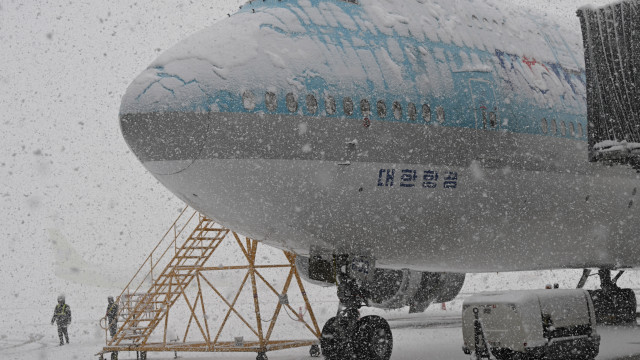



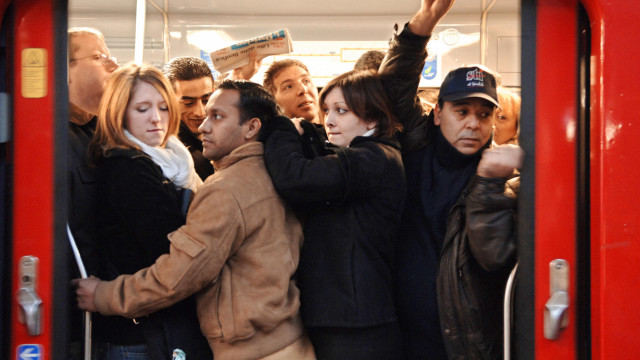




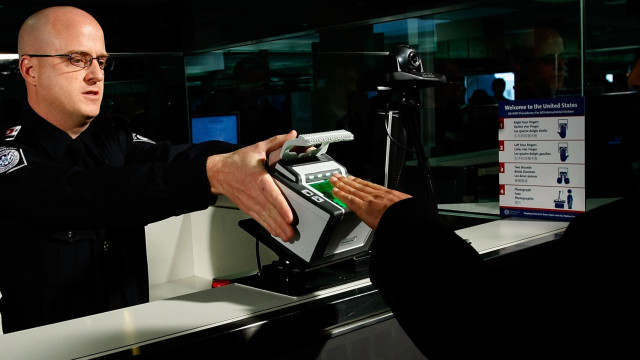











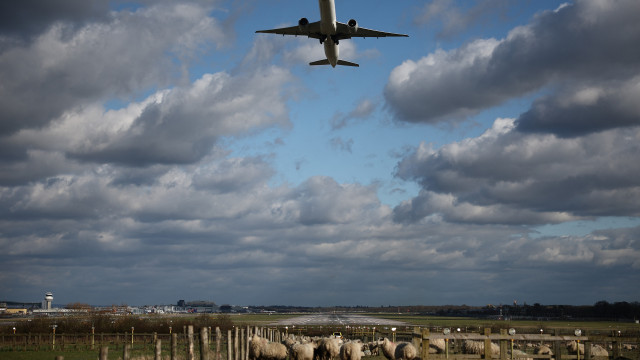





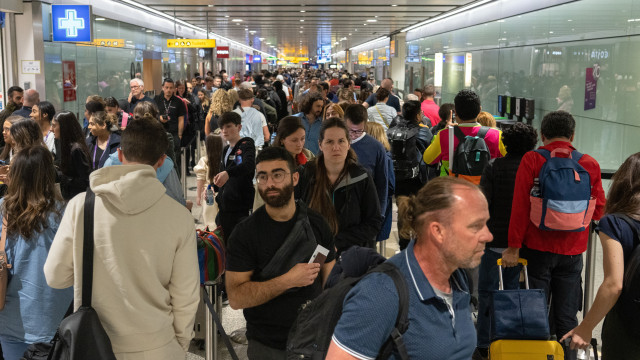





MOST READ
- Last Hour
- Last Day
- Last Week








